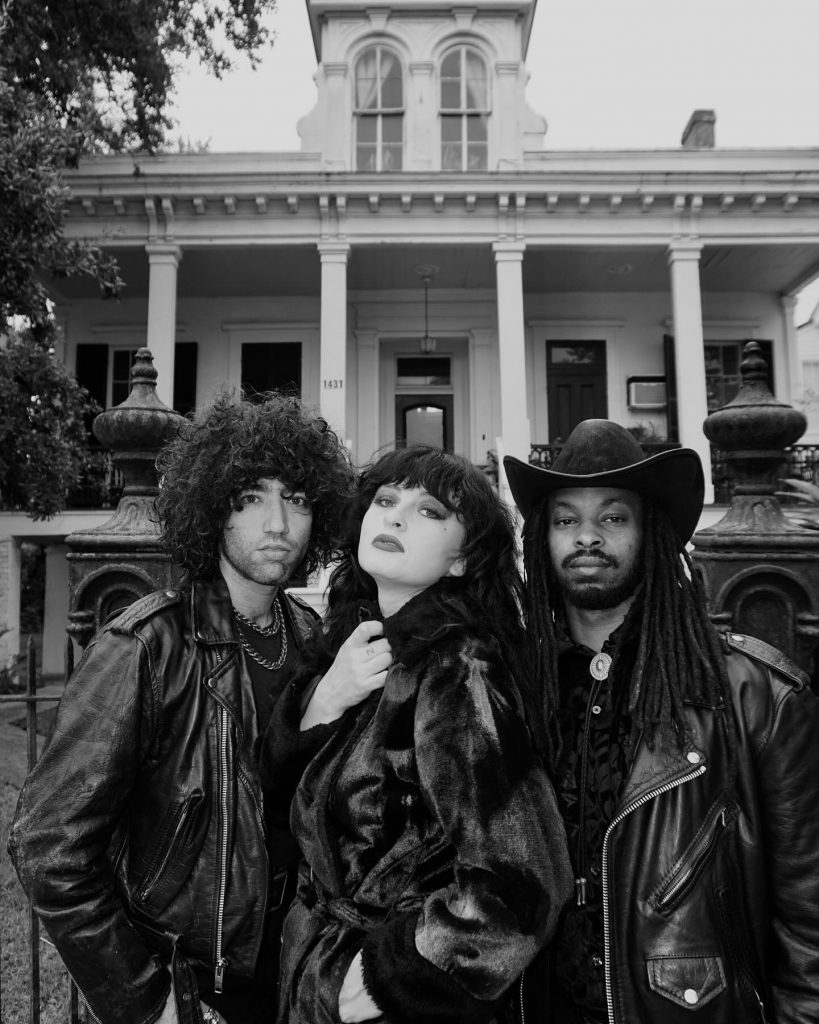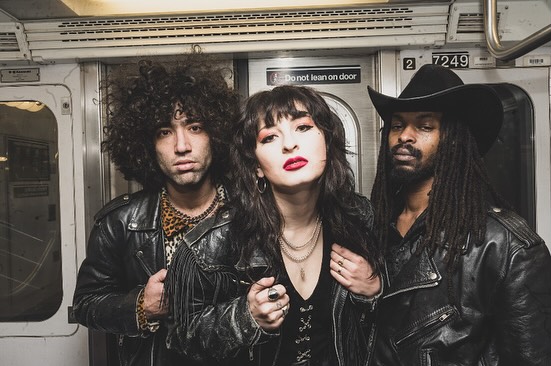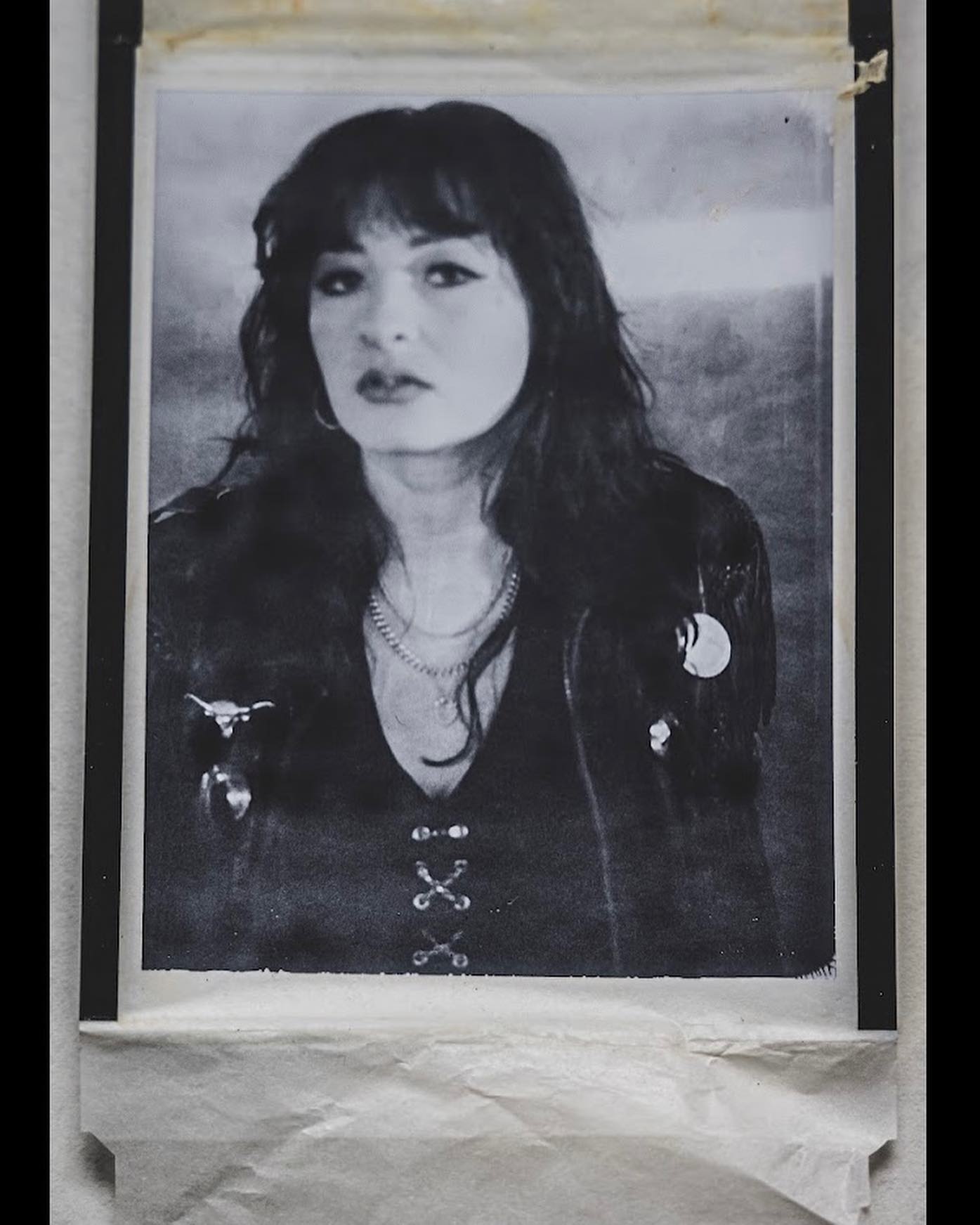MIRANDA AND THE BEAT: Rage, Resilience, and Raw Power in a World Gone Mad

In this interview, Miranda and the Beat share the story behind their album Can’t Take It, a work born of personal struggles and a broader sense of societal frustration. From channeling collective anger—“Everybody today is fucking pissed off about some crazy shit”—to confronting personal challenges, the band reflects on themes of rebellion, resilience, and raw emotion.
They also discuss the influence of their surroundings, the cinematic quality of their music, and the urgency of recording live in a setting far removed from their usual environment. With stories of fake friendships, power dynamics, and a creative process shaped by both immediacy and isolation, this conversation offers a deeper look into the making of Can’t Take It and the defiant spirit behind it.
-Hi, first off thanks for taking your time. How’s everything doing in the lair of Miranda and the Beat?
How’d you know we have an evil lair?! We moved here to New Orleans a few months ago and are almost done putting the final touches on the lair! Finishing painting it purple right now to give it that spooky feel. Our henchman Spatz the cat has been taking it over by finding the best hiding spaces to jump out and slash you. Gotta love a cute, evil cat!
– The album Can’t Take It comes across as a product of both immediacy and intensity, having been recorded in just five days. Could you walk us through the emotional atmosphere in the studio and how the rapid recording pace influenced the raw, almost live feel of the tracks? Did this energy make you approach the material differently?
As a band, we went through a whole lot of stuff in the 6 months prior to recording this record, so we had a whole bank to tap into and write about. The whole experience was extremely therapeutic, and being so isolated in the middle of nowhere in Germany made it so we didn’t have to think about anything else except getting our thoughts out and getting this record done. All the songs were recorded with the 4 of us playing live, and then I would record vocals and some guitar overdubs after that. Recording live is what gives the songs the intense sense of urgency.
– You’ve described the single «Can’t Take It» as an anthem that channels a sense of frustration and rebellion. How do you see this theme resonating with today’s audiences, especially given the current social climate? Are there any specific events or movements that inspired this sense of resistance?
Everybody today is fucking pissed off about some crazy shit that is essentially out of anyones control. It’s that feeling of being fed up with how society tells you to live, or fed up with the powers that be absolutely not giving a damn about any of us. We heard a demo that King Khan showed us of an old King Khan and BBQ Show track, and the phrase «I can’t take it, I can’t take anymore» really stuck out with us and where we were (still kind of are) at the time. We took that phrase and decided to run with it and kind of center the album around these world and personal themes that just felt like going through some unnecessary bullshit. Now that we all agree we can’t take it anymore, we gotta figure out exactly what to do about it.
– Miranda and the Beat’s music is steeped in both classic rock and punk influences, yet it has a unique modern edge. How do you go about balancing these vintage sounds with contemporary relevance? Are there particular artists or genres from both eras that you consciously weave into your music?
We don’t consciously try to sound like something or someone, our influences just tend to seep out wherever they may. I think more than going for a specific genre or whatever, we try to execute going for a specific feel or mood. We want shit to feel cinematic, where you can actually put yourself and envision a vivid scene of whatever we’re trying to convey. And in the end, we’re just trying to make shit that we are actually excited to listen to.
– The track «Earthquake Water» has a haunting, almost cinematic quality to it. What was the inspiration behind this song, and how does it fit into the larger narrative or vibe of Can’t Take It? Do you see it as conveying a metaphorical or literal sense of upheaval?
When I was a child my dad had a garage full of emergency supplies, including jugs of water, in case of a natural disaster or doomsday. One day when I was around 13 years old, I was playing guitar in my garage and took a sip of this so-called water only to find it was vodka and that his sobriety was a sham. The album is kind of a story that goes in order, and this just ties into a sense of losing control and letting the past take over, and define your current self weather for better or worse.
– Your decision to record at King Khan’s Moon Studio, far from the usual hustle of New York City, seems pivotal in the album’s sound. How did this environment shape the album creatively? Did the setting bring unexpected influences or help you tap into different facets of your artistic identity?
I mean we didn’t really have a choice. King Khan held us hostage, wielding an ancient tomahawk as soon as we showed up. He gave us one full week in order to get the album done and to spare our lives, and I guess that really lit a fire under our ass because we were done in 5 days instead of 7! He even was digging holes for our graves outside the window while we were recording, and we wanted to make sure we didn’t end up in them!
– Can’t Take It features a combination of personal stories and broader social themes. How do you approach writing lyrics that resonate personally while still speaking to the collective struggles of your listeners? Is there a specific track that exemplifies this dual focus for you?
Everyone on this planet has problems and shit that they’re going through and trying to overcome. That’s just a universal thing, and if you’re human, you can relate to being fed up in some way. Even though a lot of these songs are about personal shit, everyone has experienced these kinds of feelings in some way or another. For example, «New York Video» is about gossip, but personally for us it’s about a specific group of people who are fake as hell and stay talking a ton of shit about us behind our backs, but would never say a word to our face about anything.
– «Manipulate Me» feels like an intense confrontation, both musically and lyrically. Could you share what motivated this song and the message you hope listeners take away? Is this track aimed at particular power dynamics you’ve experienced within or outside of the music industry?
We’re not gonna go into detail with this one, but it is a true story. For listeners, just make sure to stand up for yourself and your autonomy and never let manipulative assholes guide you or make you feel like anything less than you are!
– Lastly, as an album that combines resilience with vulnerability, Can’t Take It seems to leave room for listeners to process and reflect. What do you hope audiences take away from the album as a whole, especially those who may feel disenfranchised or disillusioned by current realities?
Well first, when shit just isn’t sitting right within yourself, you gotta just take some time to reflect and ask yourself, «What is causing me to feel this anxious or unsettled or whatever it may be?» It could be a giant rock and roll man holding a tomahawk to your head, or it could be the real and actual injustices going on in your life or in the world. Give yourself time to internalize shit and then after a period of rumination is when it’s time to take action in whatever path you feel is necessary. Always listen to yourself and commit to what you know you need!
-And before we wrap this interview up, what are now your near-future plans?
Uhh I’m pretty sure Alvin’s working on a secret country album. Everytime any of us try to peak in and see what he’s up to, he turns off his computer really really fast and yells at us to get the fuck out. So yeah, hopefully new music soon!
-That’s all from our side. Thanks again for answering these questions. If you’d like to add some final words; it’s your turn.
Thanks for speaking with us and hope to see you in Spain soon! I’ve been working on my Spanish, so hopefully I will be able to talk in Spanish on stage next time we’re back!










